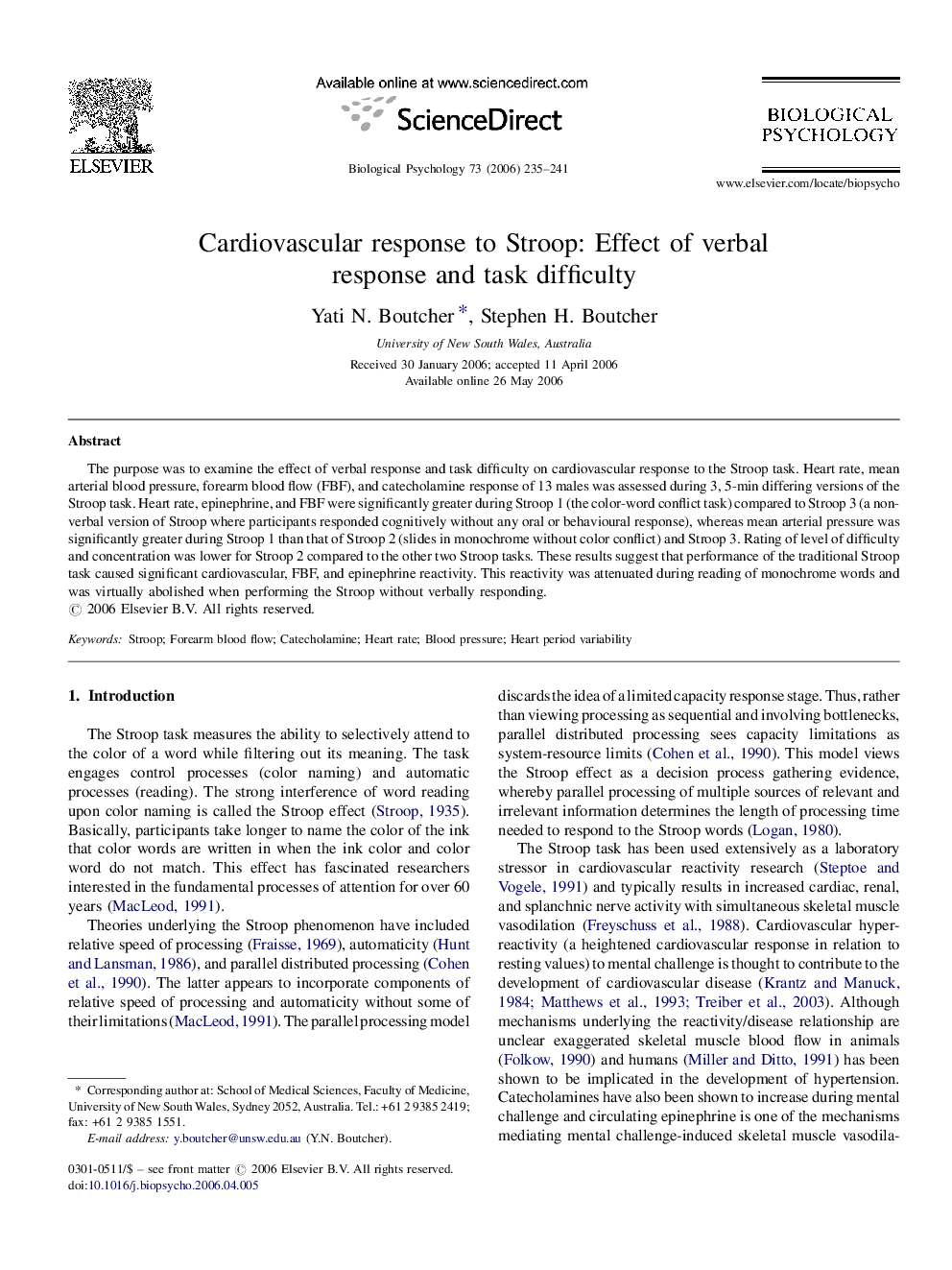| Article ID | Journal | Published Year | Pages | File Type |
|---|---|---|---|---|
| 921778 | Biological Psychology | 2006 | 7 Pages |
The purpose was to examine the effect of verbal response and task difficulty on cardiovascular response to the Stroop task. Heart rate, mean arterial blood pressure, forearm blood flow (FBF), and catecholamine response of 13 males was assessed during 3, 5-min differing versions of the Stroop task. Heart rate, epinephrine, and FBF were significantly greater during Stroop 1 (the color-word conflict task) compared to Stroop 3 (a non-verbal version of Stroop where participants responded cognitively without any oral or behavioural response), whereas mean arterial pressure was significantly greater during Stroop 1 than that of Stroop 2 (slides in monochrome without color conflict) and Stroop 3. Rating of level of difficulty and concentration was lower for Stroop 2 compared to the other two Stroop tasks. These results suggest that performance of the traditional Stroop task caused significant cardiovascular, FBF, and epinephrine reactivity. This reactivity was attenuated during reading of monochrome words and was virtually abolished when performing the Stroop without verbally responding.
